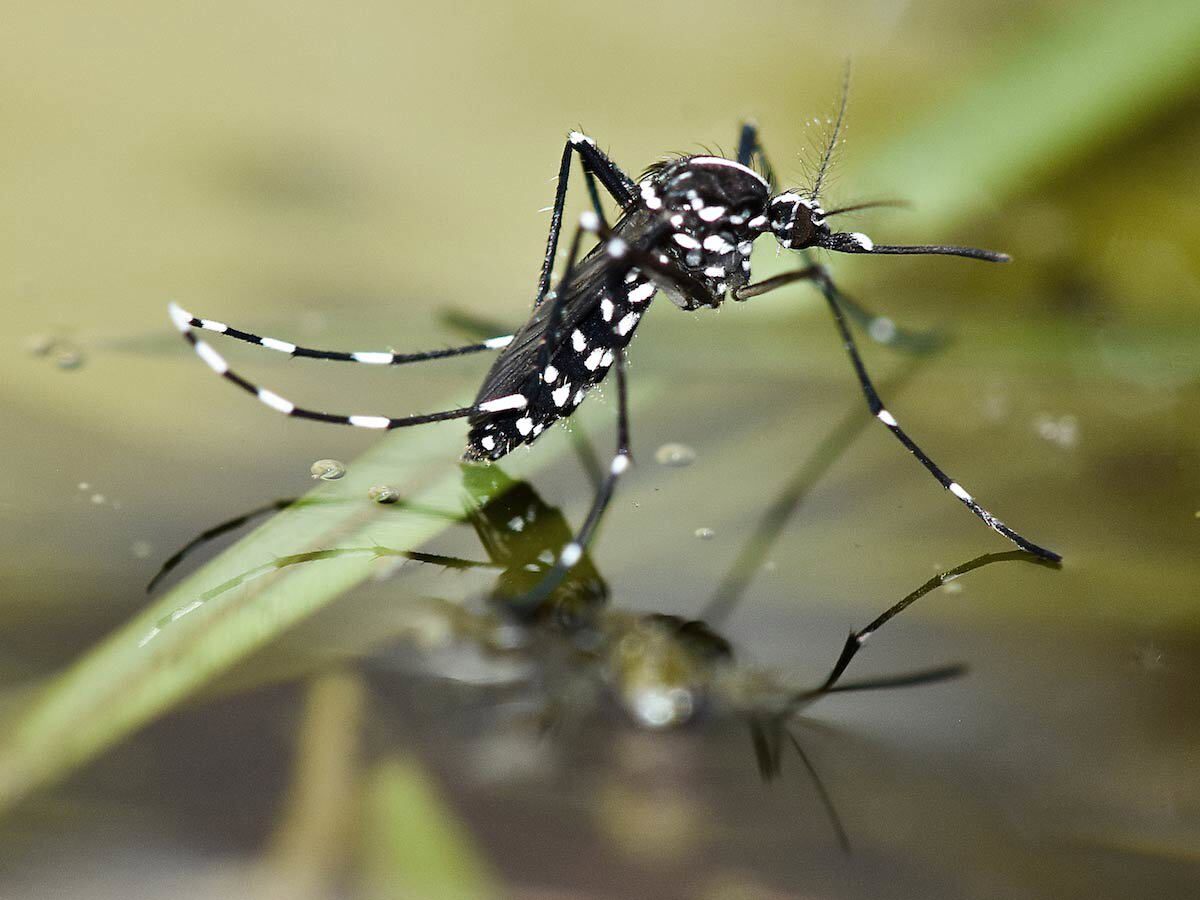
Asian Tiger Mosquitoes are more than just a nuisance; they can be a real threat to health. These tiny insects, known for their distinctive black and white stripes, are native to Southeast Asia but have spread to many parts of the world. Why should you care about them? They are carriers of diseases like dengue fever, Zika virus, and chikungunya. Unlike other mosquitoes, Asian Tiger Mosquitoes are active during the day, making them harder to avoid. They thrive in urban areas, breeding in small containers of water. Understanding these pests can help you protect yourself and your community. Ready to learn more? Let's dive into 15 essential facts about Asian Tiger Mosquitoes.
What is the Asian Tiger Mosquito?
The Asian Tiger Mosquito is a small but mighty insect known for its striking black and white striped body. Originating from Southeast Asia, this mosquito has spread to various parts of the world, causing concerns due to its aggressive biting behavior and potential to transmit diseases.
-
Scientific Name: The Asian Tiger Mosquito's scientific name is Aedes albopictus. This name helps scientists accurately identify and study this particular species.
-
Distinctive Stripes: Recognizable by its black and white stripes, this mosquito gets its name from its tiger-like appearance. These stripes cover its legs and body, making it easy to spot.
Where Can You Find Them?
These mosquitoes have expanded their territory far beyond their native regions. They thrive in various environments, adapting quickly to new habitats.
-
Global Spread: Originally from Southeast Asia, the Asian Tiger Mosquito has now spread to Africa, Europe, the Americas, and the Pacific Islands. This spread is largely due to global trade and travel.
-
Urban and Rural Areas: They are highly adaptable and can be found in both urban and rural areas. They breed in small containers of water, making city environments particularly suitable.
How Do They Affect Humans?
Asian Tiger Mosquitoes are not just a nuisance; they pose significant health risks due to their ability to transmit diseases.
-
Daytime Biters: Unlike many other mosquitoes, Asian Tiger Mosquitoes are active during the day. This increases the chances of human contact and bites.
-
Disease Vectors: They are known carriers of several diseases, including dengue fever, chikungunya, and Zika virus. Their ability to transmit these diseases makes them a public health concern.
How Do They Reproduce?
Understanding their reproduction habits can help in controlling their population and preventing the spread of diseases.
-
Egg Laying: Female Asian Tiger Mosquitoes lay their eggs in small containers of water, such as flower pots, bird baths, and discarded tires. Each female can lay hundreds of eggs in her lifetime.
-
Rapid Development: The eggs hatch into larvae within a few days, and the entire life cycle from egg to adult can be completed in as little as a week under optimal conditions.
What Are Their Natural Predators?
Despite their rapid spread and adaptability, Asian Tiger Mosquitoes do have natural predators that help keep their population in check.
-
Fish and Amphibians: Fish, frogs, and other amphibians feed on mosquito larvae, helping to control their numbers in natural water bodies.
-
Birds and Bats: Adult mosquitoes are preyed upon by birds and bats, which can consume large quantities of insects, including mosquitoes.
How Can You Protect Yourself?
Preventing bites and controlling mosquito populations are key to reducing the risks associated with Asian Tiger Mosquitoes.
-
Use Repellents: Applying insect repellent containing DEET, picaridin, or oil of lemon eucalyptus can help keep these mosquitoes at bay.
-
Eliminate Standing Water: Removing standing water from around your home can reduce breeding sites. Regularly empty and clean containers that collect water.
Interesting Facts
Here are some intriguing tidbits about the Asian Tiger Mosquito that highlight its unique characteristics and behaviors.
-
Cold Tolerance: Unlike many other mosquito species, Asian Tiger Mosquitoes can survive in colder climates. This ability has contributed to their spread into temperate regions.
-
Aggressive Biters: They are known for their aggressive biting behavior. They will often bite multiple times in a short period, increasing the likelihood of disease transmission.
-
Long Lifespan: In favorable conditions, an adult Asian Tiger Mosquito can live for several weeks. This extended lifespan allows them more opportunities to reproduce and spread diseases.
Final Buzz on Asian Tiger Mosquitoes
Asian tiger mosquitoes are more than just pesky biters. These insects, known for their distinctive black-and-white stripes, are vectors for diseases like dengue fever, Zika virus, and chikungunya. They thrive in urban areas, breeding in small containers of stagnant water. Unlike other mosquitoes, they’re active during the day, making them harder to avoid. Their rapid spread across continents is due to global trade and travel. Controlling their population involves eliminating breeding sites and using repellents. Understanding their behavior and risks can help protect communities from potential outbreaks. So, next time you see one, remember it’s not just an annoying insect but a potential health threat. Stay vigilant, keep your surroundings clean, and use mosquito control measures to reduce their impact. Knowledge is your best defense against these tiny invaders.
Was this page helpful?
Our commitment to delivering trustworthy and engaging content is at the heart of what we do. Each fact on our site is contributed by real users like you, bringing a wealth of diverse insights and information. To ensure the highest standards of accuracy and reliability, our dedicated editors meticulously review each submission. This process guarantees that the facts we share are not only fascinating but also credible. Trust in our commitment to quality and authenticity as you explore and learn with us.


